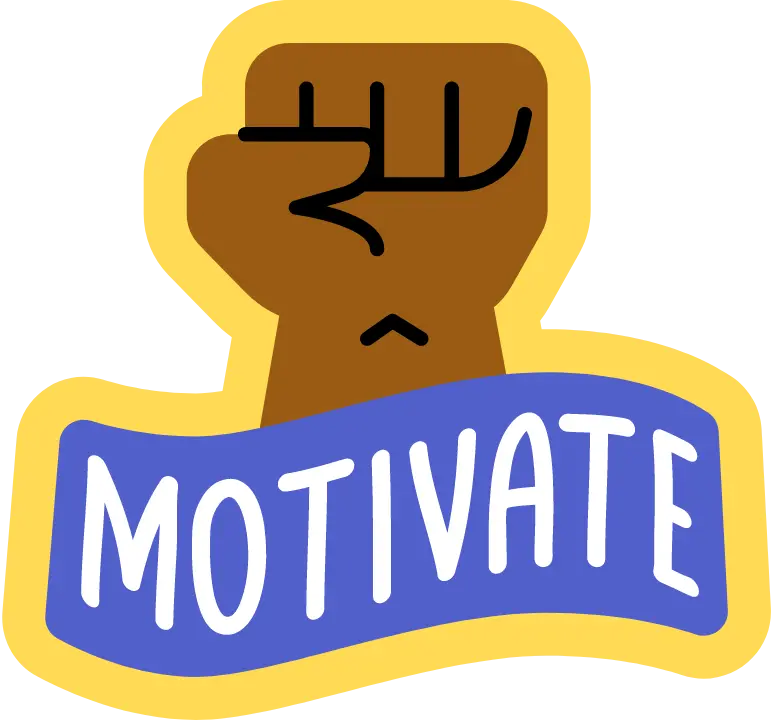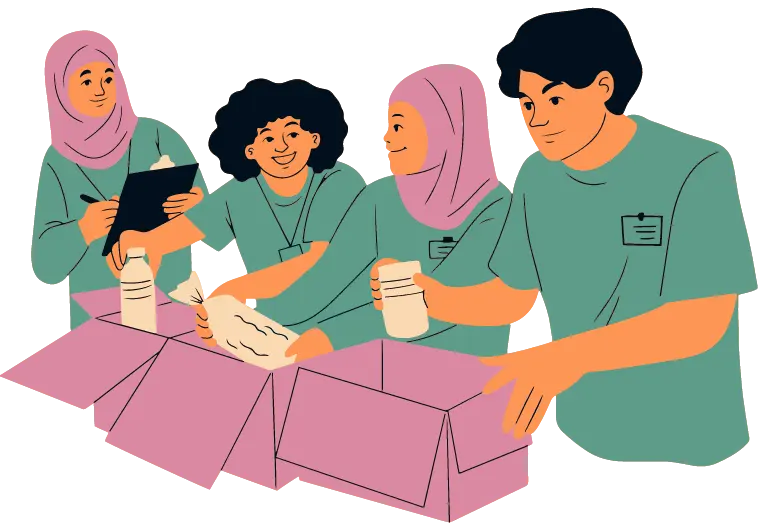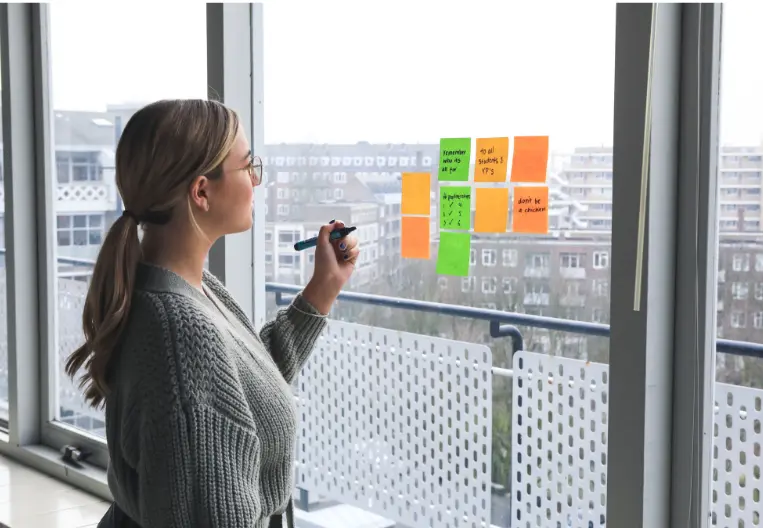By Suyash Handa | 24th March, 2023
As a student, you have a lot on your plate. Between classes, assignments, and extracurricular activities, it can be challenging to find time for anything else. However, investing time in self-improvement can pay off in the long run. It can help you become more productive, confident, and fulfilled. In this article, we will share 30 ways to start working on self-improvement as a student.
Self-improvement is a journey of continuous growth and development that can benefit individuals in various aspects of their lives, including academic and personal pursuits. As a student, investing time and effort in self-improvement can yield long-term benefits and positively impact future opportunities. In this article, we will discuss the importance of self-improvement as a student and explore how it can benefit your academic and personal life.

• Mindset And Motivation
Developing a positive mindset and finding motivation can greatly impact your self-improvement journey as a student. Here are some key pointers to help you get started:
1. Understanding Your Why
Reflect on why you want to improve yourself and what goals you hope to achieve. This will provide a sense of purpose and direction.
2. Cultivating A Growth Mindset
Adopt a growth mindset by embracing challenges and learning from mistakes. Believe that your abilities can be developed through dedication and hard work.

3. Setting Realistic Goals
Set goals that are specific, measurable, achievable, relevant, and time-bound (SMART). This will help you stay focused and motivated.
4. Finding Inspiration And Motivation
Seek out inspiration from successful individuals in your field, listen to motivational speeches, or find a mentor who can offer guidance and support. Surrounding yourself with positive influences can keep you motivated and on track.
• Time Management And Productivity

Effective time management is crucial for students looking to improve themselves. Here are some pointers to help you manage your time and increase your productivity:
5. Prioritizing Your Tasks
Determine which tasks are most important and urgent and prioritize accordingly. This will help you focus on what needs to be done first.
6. Creating A Schedule Or Routine
Develop a schedule or routine that works for you and helps you stay organized. Set aside specific times for studying, working on assignments, and leisure activities.
7. Avoiding Procrastination
Procrastination can be a major obstacle to productivity. Avoid procrastination by breaking tasks into smaller, manageable pieces and tackling them one by one.
8. Taking Breaks And Resting

Taking regular breaks and getting enough rest is crucial for maintaining productivity and avoiding burnout. Take short breaks throughout the day and prioritize getting enough sleep at night.
• Learning Strategies And Study Techniques
As a student, utilizing effective learning strategies and study techniques can greatly enhance your academic performance and personal growth. Here are some pointers to consider:
9. Active Learning Techniques
Engage in active learning techniques such as asking questions, participating in discussions, and teaching others. This approach helps you retain information better and encourages critical thinking.

10. Using Study Groups Or Partners
Collaborating with others can be an effective way to learn and retain information. Join a study group or find a study partner to share knowledge, exchange ideas, and provide support.
11. Keeping A Study Journal Or Planner
Keep track of your progress by maintaining a study journal or planner. This can help you track your accomplishments, stay organized, and manage your time more effectively.

12. Taking Effective Notes
Develop effective note-taking strategies such as using bullet points, abbreviations, and highlighting key information. This will help you retain information better and provide a useful reference when studying for exams.
• Health And Wellness
Taking care of your physical and mental health is an important aspect of self-improvement as a student. Here are some pointers to help you prioritize your health and well-being:

13. Eating A Balanced Diet
Fuel your body and brain with a balanced diet that includes a variety of nutrient-rich foods. Avoid excessive junk food, sugar, and processed foods.
14. Getting Enough Sleep
Getting adequate sleep is crucial for academic performance and overall health. Aim for 7-9 hours of sleep per night and establish a regular sleep routine.
15. Regular Exercise Or Physical Activity
Exercise is a great way to reduce stress, improve mood, and boost overall health. Incorporate regular exercise or physical activity into your routine, such as walking, yoga, or strength training.
16. Practicing Stress-Reduction Techniques
Stress is a common part of student life, but managing stress is essential for your health and well-being. Practice stress-reduction techniques such as meditation, deep breathing, or journaling to manage stress and improve mental health.

• Building Relationships And Networks
Building relationships and networks is a crucial aspect of personal growth and self-improvement as a student. Here are some pointers to help you build relationships and networks:
17. Networking With Peers, Professors, And Professionals
Networking with peers, professors, and professionals in your field can help you gain valuable insights, knowledge, and opportunities. Attend networking events, career fairs, and conferences to meet new people and expand your network.
18. Joining Clubs Or Organizations
Joining clubs or organizations related to your interests or career aspirations can help you develop new skills, make new friends, and gain leadership experience. It also provides opportunities to engage in meaningful activities and community service.
19. Volunteering And Community Service
Engage in community service and volunteer work to give back to the community and gain valuable experience. It also provides opportunities to meet new people and build connections.

20. Building A Support System
Building a support system of family, friends, and mentors can provide emotional support, encouragement, and guidance. It can also help you manage stress and navigate challenges.

• Personal Development And Growth
Personal development and growth is a continuous process of self-improvement that can lead to greater success and fulfillment in life. Here are some pointers to help you focus on personal development and growth:
21. Exploring Your Interests And Passions
Identify your interests and passions and explore them further through reading, research, and hands-on experience. This can help you discover new skills and opportunities.
22. Trying New Things Or Experiences
Stepping out of your comfort zone and trying new things or experiences can help you gain new perspectives, overcome fears, and develop new skills.

23. Seeking Feedback And Constructive Criticism
Seek feedback and constructive criticism from peers, professors, and mentors to gain insights into your strengths and areas for improvement. Use this feedback to develop and grow.

24. Embracing Challenges And Failure
Embrace challenges and failures as opportunities for growth and learning. Use them as opportunities to reflect, learn, and improve for future endeavors.
• Career Development And Planning
As a student, it's important to think about your career goals and plan for your future. Here are some pointers to help you with career development and planning:
25. Exploring Career Options
Take the time to explore different career options that align with your interests, skills, and values. Research different industries and job roles, and consider job shadowing or informational interviews with professionals in those fields.

27. Building A Professional Network
Building a professional network can help you gain insights into your desired industry, learn about job opportunities, and receive mentorship and guidance from professionals. Attend networking events, connect with alumni, and join professional organizations to expand your network.
28. Creating A Professional Brand
Creating a professional brand can help you stand out to potential employers and showcase your unique skills and experiences. Consider creating a personal website, LinkedIn profile, or portfolio to highlight your achievements and experiences.
29. Seeking Career Guidance And Resources
Seeking guidance and resources from your school's career center or career services office can help you with resume and cover letter writing, job searching, and interview preparation. Take advantage of these resources to improve your chances of success.

30. Planning For Graduate School
If you're considering graduate school, start planning early. Research different programs, take required entrance exams, and begin preparing application materials well in advance. Planning ahead can help you make informed decisions and increase your chances of acceptance.
• Conclusion
Self-improvement is a continuous journey that can lead to greater success, happiness, and fulfillment in life. By focusing on mindset and motivation, time management and productivity, learning strategies and study techniques, health and wellness, building relationships and networks, and personal development and growth, you can begin your journey towards self-improvement. Remember that consistent effort is key, and don’t be discouraged by setbacks or challenges. By embracing new experiences, seeking feedback, and staying committed to your goals, you can continue to grow and improve as a student and as a person.

Self-improvement is a continuous journey that can lead to greater success, happiness, and fulfillment in life. By focusing on mindset and motivation, time management and productivity, learning strategies and study techniques, health and wellness, building relationships and networks, and personal development and growth, you can begin your journey towards self-improvement. Remember that consistent effort is key, and don’t be discouraged by setbacks or challenges. By embracing new experiences, seeking feedback, and staying committed to your goals, you can continue to grow and improve as a student and as a person.






Forgot password?
Close message
Subscribe to this blog post's comments through...
Subscribe via email
SubscribeComments
Post a new comment
Comment as a Guest, or login:
Connected as (Logout)
Not displayed publicly.
Comments by IntenseDebate
Reply as a Guest, or login:
Connected as (Logout)
Not displayed publicly.